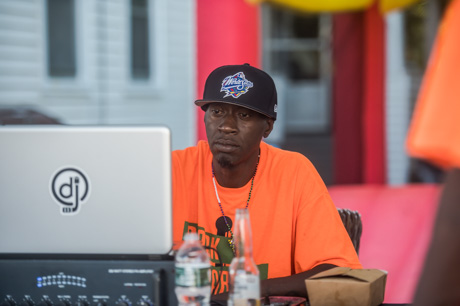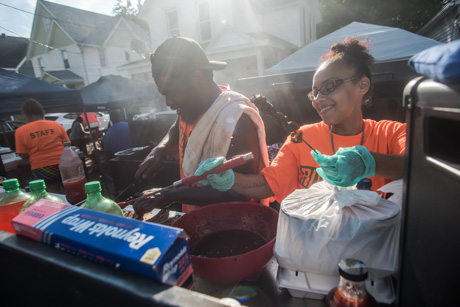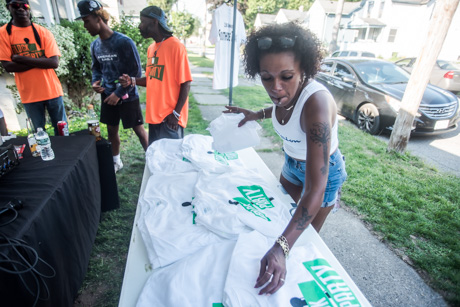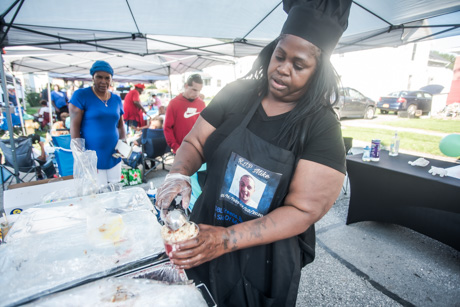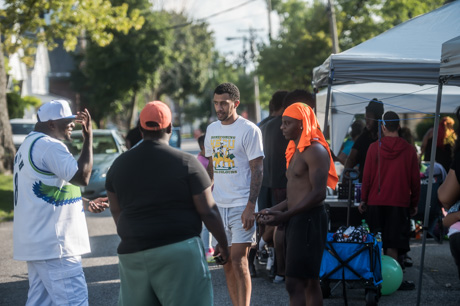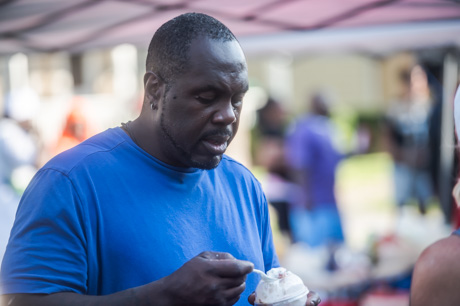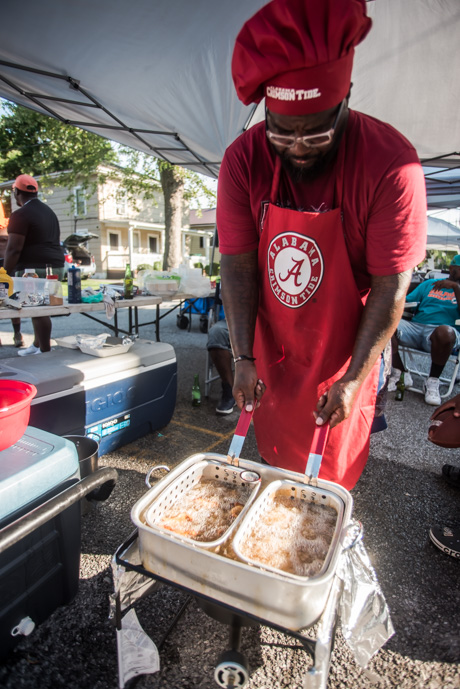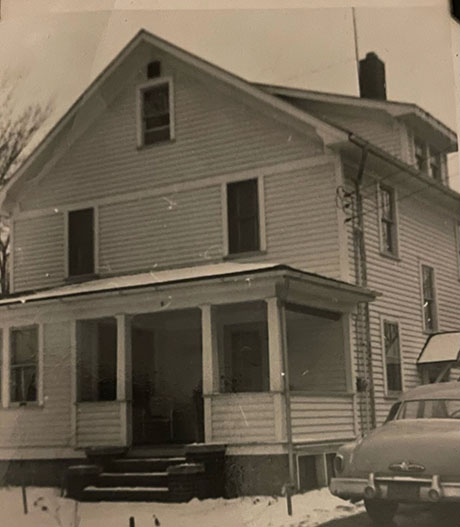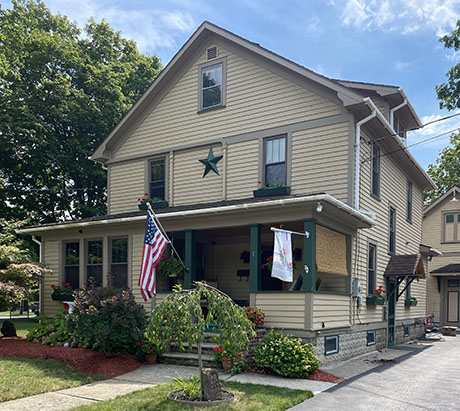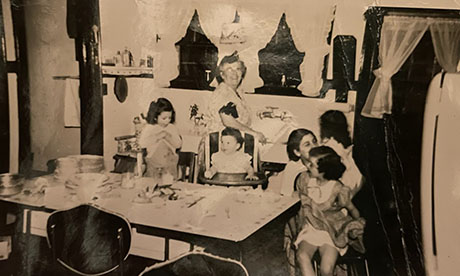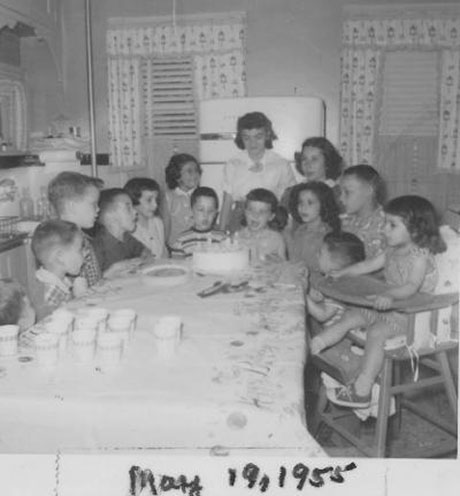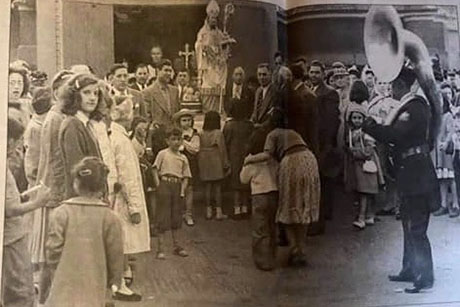Block party: don't block access to driveways, streets or fun
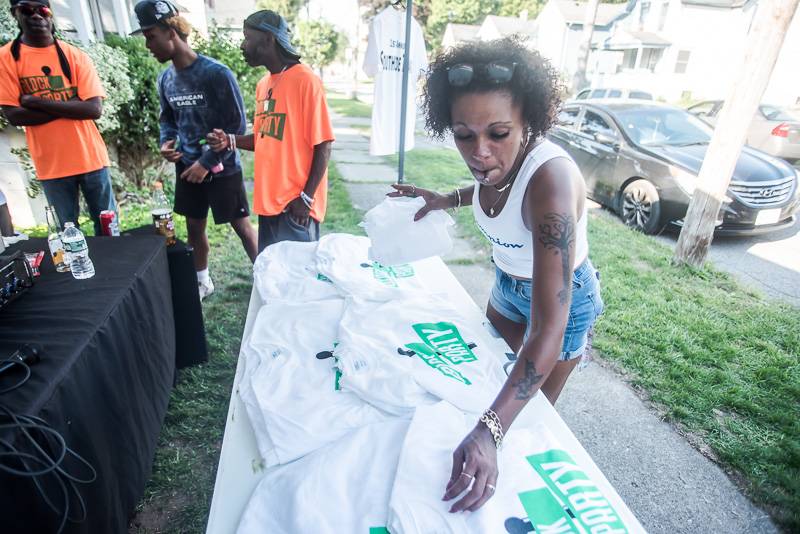
By Howard Owens.
When you hear the term block party, what comes to mind?
For City Councilman-at-large Bob Bialkowski, he thinks of idyllic picnics on Kingsbury Avenue for a barbecue, children's games and everyone going home by sundown, whereas Jerry Smith Jr. envisions food and craft vendors, a heavy musical lineup, T-shirts to commemorate the event and fun that goes well into the evening.
While block parties can stray in structure and size, they typically have one thing in common: they are meant to bring folks together to get to know one another and — ideally — strengthen the neighborhood.
While Smith believed that happened for his southside block party last year, others in his neighborhood had different feelings, as expressed to various council members. Before the summer party season begins this year, members of council wanted to revisit a few elements of that party that seemingly went off the rails, Bialkowski said.
“The whole thing was a disaster last year,” the councilman-at-large said, adding that nearby residents complained about various issues. “People sat on (one resident’s) front porch and on her lawn furniture, and wouldn’t move. She was afraid to tell him to get off her driveway, and she couldn’t leave. And other people had the same problem. The neighborhood hadn’t been notified about the block party, people couldn’t get into their driveways.”
Bialkowski asked to put the issue on Monday’s conference agenda for the group to discuss. There were other complaints, apparently, about loud and late-night music, street access being blocked off by barricades, a barbecue and smoker grill blowing volumes of smoke into adjacent homes and concerns that streets were full of vendors with little room for emergency vehicles to access if necessary.
Council President Eugene Jankowski Jr. said he doesn’t think anyone purposely did anything wrong; it’s just a matter of following through on some ground rules. Yes, sometimes a neighborhood party may inconvenience folks a bit, but it shouldn't prevent them from getting into or out of their own homes or otherwise enjoying their environments, he said.
“It's not a problem. I mean, as long as they follow the rules, there's no problem,” Jankowski said. “No one called the police, no one called the authorities, no one knew who was running the party, the people that complained really weren't sure what was going on. So they didn't know who to contact. So later on, they contacted council members and said that they were upset because the block party had caused them some inconvenience. Some of those inconveniences were being unable to get in their driveway, strangers walking on their front lawn and such. And they didn't know what was going on. And they were concerned.”
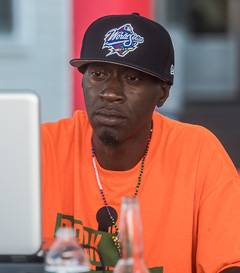
Photo by Howard Owens
Smith told The Batavian that he was unaware of any complaints, as none had been addressed to him directly. He had not attended the council meeting when his application was reviewed last year either. He is planning to have another block party this year, and he said that he will notify the street of the event.
He was bothered that there might be something else going on related to the complaints, primarily that he and many party attendees are black.
Jankowski said that their racial makeup has no effect on him, and he lives on the southside and has no issues with anyone. He then took pause to reflect on that issue for a minute.
“Let's just talk about the elephant in the room here. It's not uncommon that any time somebody has an issue, it's a race-related issue, right? Everybody's got this on their mind. And they're in, so everybody's trying to say, Well, it's because we've had a block party and because we're black. Yeah. Nice try, but no, it’s because people couldn't get to their driveways,” Jankowski said. “And, you know, I live on this side of town. And it's a diverse side of town. Italian, Polish, black, Hispanic, everybody's fine. I don't see any problem. It's a peaceful place to live, it’s the best-kept secret of Batavia.
“So, you know, like I said, some disconnect took place within the parameters and, and if everything is done safely and through the health department, if you're going to be charging people for food … parties sometimes, it causes inconveniences, but maybe we should put a mechanism for someone to be aware of one of those, if you're gonna have a block party, you need to make sure everybody in the neighborhood knows what's going on,” he said. “And that they can get in and out of their driveway at all times. And that emergency traffic can go through at all times, you’re not blocking it off.”
City Manager Rachael Tabelski summarized the main points to be highlighted to applicants:
- Local traffic must be able to get through, you certainly can't block the driveway.
- You can't block emergency access.
- You're not to go on other's property who don't offer it as part of the celebration, things of that nature.
- You have to make outreach to the neighbors, whether it's knocking on doors, flyers -- something personal -- so that everyone understands what is going on and how it will affect their neighborhood.
“The last question I had was a topic that came up, do you have to be a neighborhood resident to throw the party? Council member Richmond brought it up, I just want clarity on how the rest of the council feels,” Tabelski said, getting her answer. “Okay, so in this case … the majority of times when these parties are thrown, it is a resident of that neighborhood who tries to open their yard or their home in the street.”
After council’s discussion on Monday, they agreed that city staff would be more communicative with applicants so that both sides would be better informed about events. Bialkowski was satisfied with the end result, he said.
“What I had hoped to accomplish, I think, is accomplished. The staff’s going to review these things from here on in. Police should need to send somebody down when they have one to make sure everything's copacetic,” Bialkowski said.
He also had a suggestion for Smith, who is planning to submit an event application for an ambitious-sounding block party this year: maybe he’d want to consider having it at a park instead.

